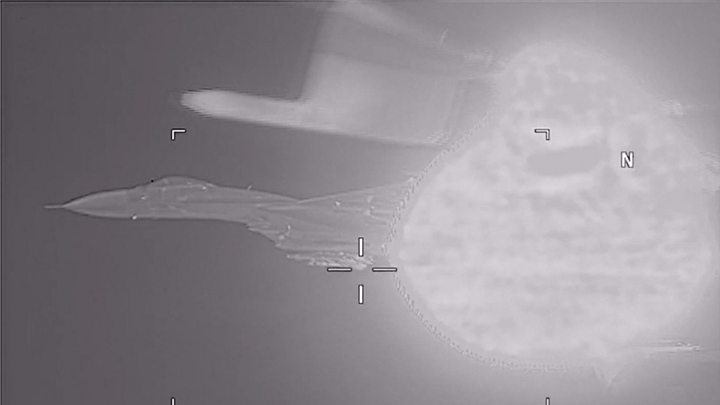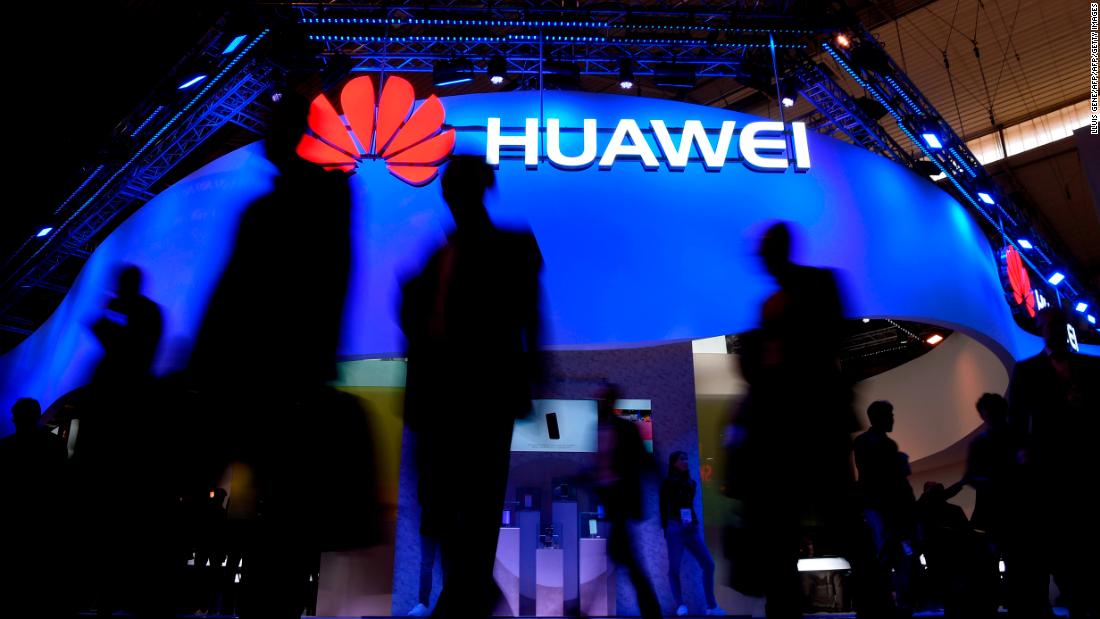May will remain in post as Prime Minister until a new Conservative leader is selected. All being well, once in place, the Queen will then invite May's successor to form a government.
But here we are. It's all very exciting, if your idea of excitement is watching endless videos of mostly white men telling you what a great job they'd do of leading.
Crucially, they all want you to know how they would succeed where May failed and strike a new Brexit deal with the EU.
Eagle-eyed readers will have already spotted the snag. Unless you live in the fantasy world of the Westminster bubble, phase one of the Brexit talks with the EU is formally closed, never to be reopened.
May's negotiators spent the best part of two years in talks with EU officials and leaders of the other member states to arrive at what is known as the Withdrawal Agreement -- commonly referred to as May's Brexit deal. Both sides thought it was a fair compromise that took into consideration the specific concerns of all involved.
But, as history tells us, the vast majority of Members of Parliament in Westminster loathed it, rejecting it three times.
Why did it fail? Largely, because of something called the Irish border backstop. This instrument was included in the Withdrawal Agreement as an emergency measure to avoid the need for physical infrastructure on the border between the Republic of Ireland (an EU member state) and Northern Ireland (part of the UK). The problem for Brexiteers is that, for legal reasons, the backstop requires the UK to stay closely linked to Europe -- something they regard as a dirty Brussels trap to keep the UK in the EU in all but name.
The three candidates currently considered most likely to succeed May all believe that, when presented with a fresh set of negotiators, EU officials in Brussels will see the light. They will be convinced that the only way to avoid a no-deal Brexit is to reopen the Withdrawal Agreement and change -- or in some cases, scrap -- the backstop. Then, Parliament would unite behind a deal and everyone can relax.
The frontrunner, Boris Johnson, is at the harder end of the backstop spectrum. In an ideal world, he would like to get rid of it. And without significant changes, Johnson says he will take the UK out of the EU on October 31, with or without a deal.
Johnson's closest ally in the 2016 leave campaign, Michael Gove, is also gunning for the top job. Like Johnson, he believes that the EU's priority will be to get a deal approved and avoid chaos. Unlike Johnson, he has refused to commit to leaving on October 31, whatever the state of a deal.
The same goes for Jeremy Hunt. He says he is not scared of no deal, but believes that he can assemble a team that would convince the EU it's in Europe's interest to change the backstop.
Why are these candidates so confident that they can make the EU blink? Two reasons.
First, they believe the EU wants to avoid a no deal at all costs. And to be fair, evidence to date backs this logic. EU leaders have twice allowed extensions to the Brexit deadline and have been accommodating of the UK's chaotic politics.
Second, they think that the EU's obstinance is because it doesn't believe anything can command a majority in the House of Commons. Again, this logic doesn't come from nowhere. Having knocked back May's deal three times, the Commons put forward alternative proposals for Brexit -- all of which failed to achieve a majority.
All the next leader needs to do is prove to the EU that they can get a majority for a tweaked deal and, hey presto, the EU avoids a no deal and Brexit is done and dusted. For now, at least.
The problem with this -- and it's a big one -- is that no one in Brussels or across Europe has given the slightest indication that the Withdrawal Agreement can be changed. That means no tweaks to the backstop and no "new deal." While it's tempting for those leadership candidates to dismiss this as public bluster that is nothing more than a negotiating position, it mirrors exactly what is being said by both European and British officials in private.
There are of course more leadership candidates than Johnson, Gove and Hunt. As things stand, 11 Conservatives have declared and represent positions varying from actively perusing a no deal and banishing all pro-EU Conservatives from the Cabinet to holding a second Brexit referendum.
There are two candidates who accept that May's deal has to be the starting point of any negotiations and that everything else is for the future relationship talks. These two men are Matt Hancock, the health secretary, and Rory Stewart, the international development secretary.
Both have attracted praise from Conservative moderates and from people outside the party, who are sick of Brexit and want to avoid no deal almost as much at the EU does.
Unfortunately for Hancock, Stewart and the EU, it's not members of the public that will ultimately elect the next leader. That honor falls to the
160,000 card-carrying members of the Conservative party. And as anyone who has followed Brexit knows, many members of that party are fine with no deal.
And the members only get a say once the list of candidates has been whittled down to two by the 313 Conservative lawmakers. They are less extreme on Brexit, but know that if they put forward anyone remotely pro-Europe to the membership, they will lose.
This is where we come back to the top three. To win this contest, you need to win over the moderate lawmakers while still appealing to the party's euroskeptic base.
When you look at it this way, the plan to renegotiate the Withdrawal Agreement or leave with no deal makes perfect sense -- which is presumably why the top three are the top three. At least, it makes sense in the bizarre Brexit vacuum that the UK seems incapable of escaping.
Of course, astonished officials in Brussels are watching this. They are now resigned to the fact that, after three years of finally making the UK understand its position, a new leader with unworkable ideas is about to come and make demands that make no sense.
As one EU official put it: "The British presumption that the Commission will budge because a new Commission is coming after the EU elections is a misunderstanding of how the EU works. That is a decision for member states, whose leaders -- and positions -- have not changed. Besides, the new Commission doesn't come in till November. If the UK wants to waste its time until then, it's going the right way about it."
Of course, the EU might perform the almightiest U-turn and back down. But the conventional wisdom suggests that next prime minister might discover that the problem wasn't Theresa May, but structural problems with Brexit. And that leader should think carefully about the fact that May is the second leader to have their career ruined by Brexit.
They might also want to reflect
on the words of Donald Tusk, President of the European Council, as he announced the EU's decision to allow and extension until October 31: "Please don't waste this time."
https://edition.cnn.com/2019/06/07/uk/theresa-may-conservative-leadership-luke-mcgee-intl-gbr/index.html








